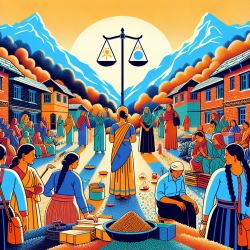Community health workers (CHWs) play a pivotal role in global health systems by addressing health disparities and reaching underserved populations. However, their contributions are often undervalued due to inadequate support and recognition. The history of Nepal's Female Community Health Volunteer (FCHV) program provides valuable lessons for practitioners looking to enhance their skills and improve CHW initiatives worldwide.
The Genesis of the FCHV Program
The FCHV program in Nepal was established in the late 1980s as a response to the need for maternal and child health services. Initially, the program faced challenges due to gender biases and cultural norms that limited women's participation. Despite these obstacles, the program evolved into one of the most successful CHW models globally.
Key Lessons from Nepal's FCHV Program
- Gender-Specific Roles: The transition from male to female volunteers was driven by the need for culturally appropriate maternal and child health services. This shift highlights the importance of considering gender roles in CHW programs.
- Volunteerism vs. Compensation: While volunteerism is a cornerstone of many CHW programs, Nepal's experience shows that adequate compensation is crucial for sustaining motivation and reducing opportunity costs for volunteers.
- Community Legitimacy: FCHVs gained legitimacy through their involvement in high-profile health campaigns like the National Vitamin A Program. This underscores the importance of providing tangible benefits and recognition to CHWs.
- Policy Support: Government policies that recognize and motivate CHWs can enhance their effectiveness. Nepal's introduction of incentives like dress allowances and endowment funds are examples worth emulating.
- Labor Movements: The rise of labor movements among FCHVs reflects their growing identity as workers rather than volunteers. This highlights the need for policies that address fair compensation and working conditions.
Encouraging Further Research
The history of Nepal's FCHV program offers a rich source of insights for practitioners interested in improving CHW initiatives. By understanding the historical context and challenges faced by FCHVs, practitioners can develop more effective strategies that address gender dynamics, workload management, and policy support.
Practitioners are encouraged to explore further research on CHW programs to gain a deeper understanding of how historical lessons can be applied to contemporary challenges. Engaging with academic literature and case studies can provide valuable perspectives on enhancing CHW effectiveness globally.
To read the original research paper, please follow this link: An anthropological history of Nepal’s Female Community Health Volunteer program: gender, policy, and social change.










